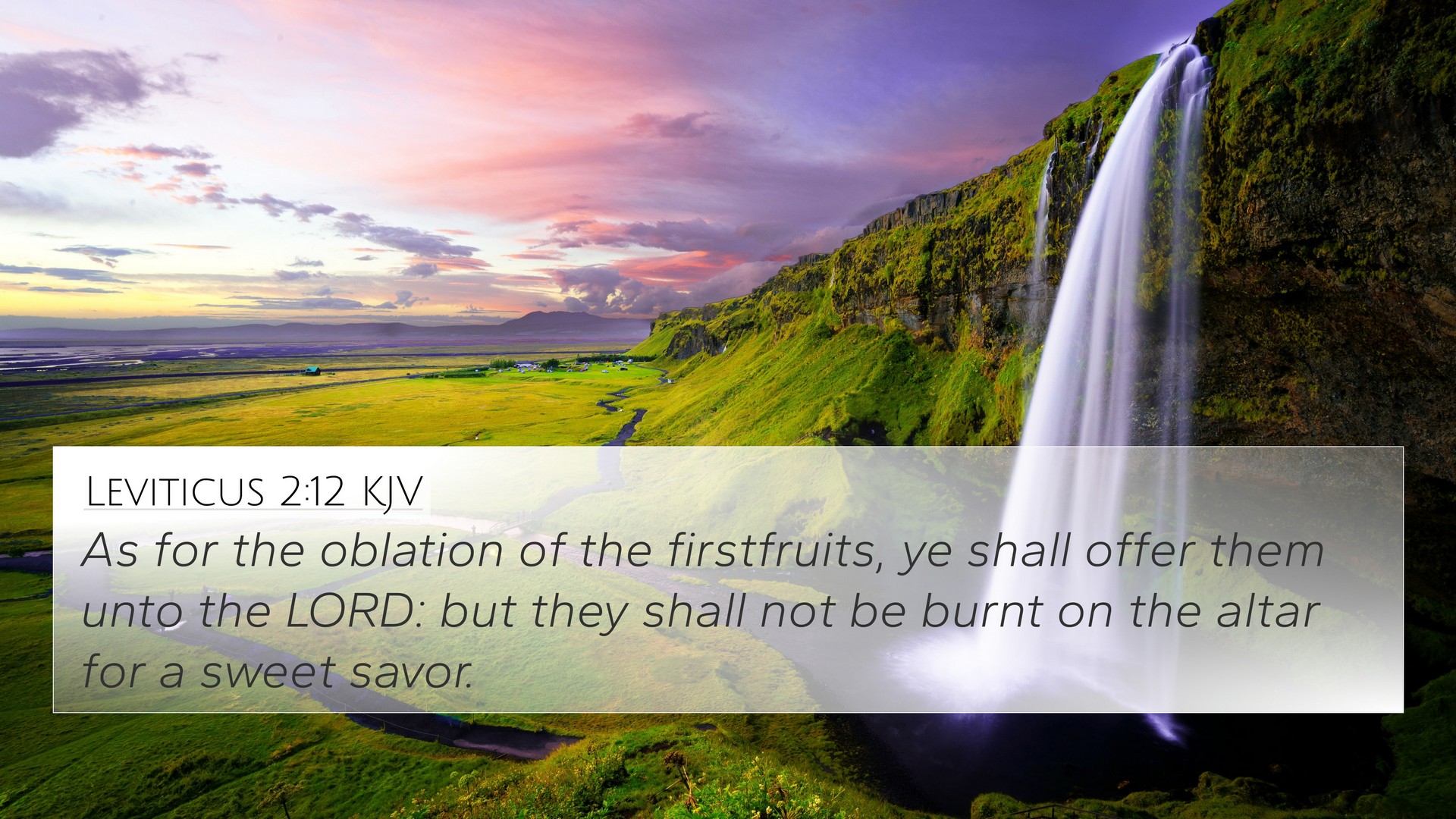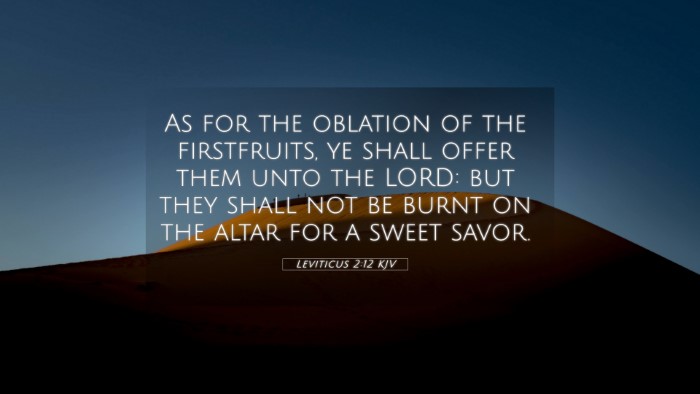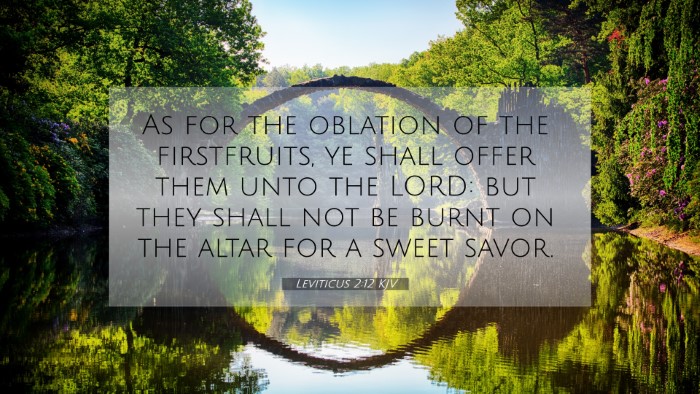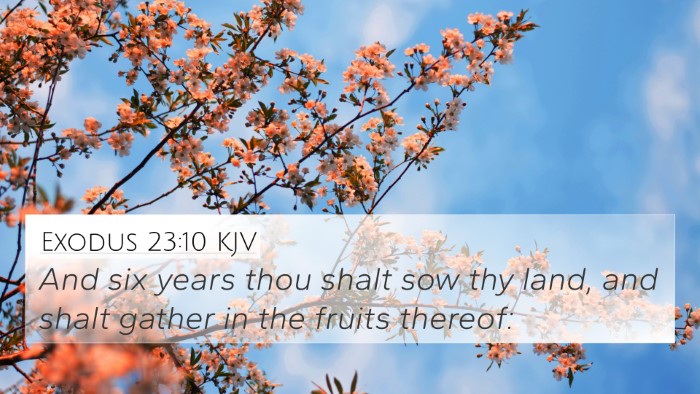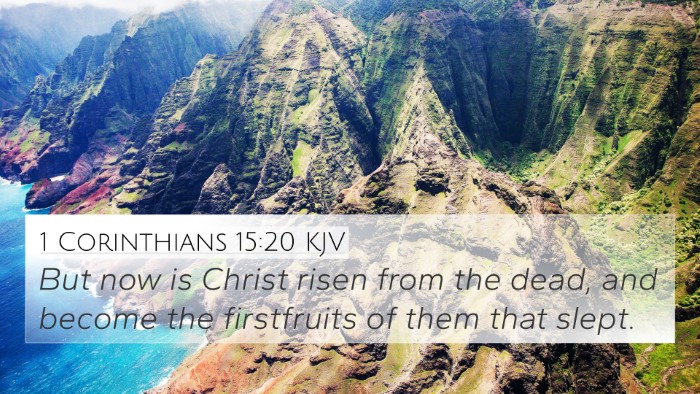This section features a detailed cross-reference designed to enrich your understanding of the Scriptures.
Below, you will find carefully selected verses that echo the themes and teachings related to Leviticus 2:12 KJV. Click on any image to explore detailed analyses of related Bible verses and uncover deeper theological insights.
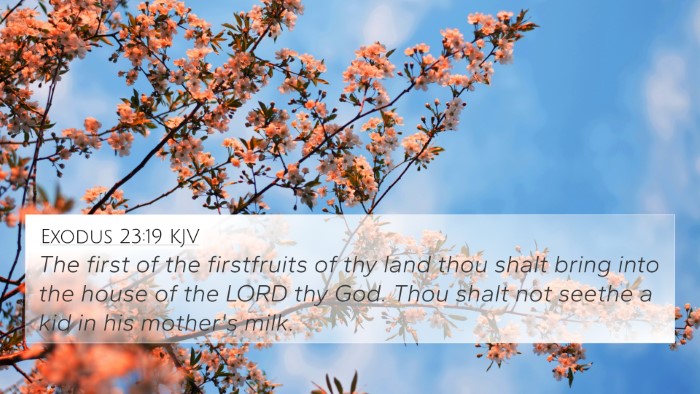 Exodus 23:19 (KJV) »
Exodus 23:19 (KJV) »
The first of the firstfruits of thy land thou shalt bring into the house of the LORD thy God. Thou shalt not seethe a kid in his mother's milk.
 Genesis 23:17 (KJV) »
Genesis 23:17 (KJV) »
And the field of Ephron which was in Machpelah, which was before Mamre, the field, and the cave which was therein, and all the trees that were in the field, that were in all the borders round about, were made sure
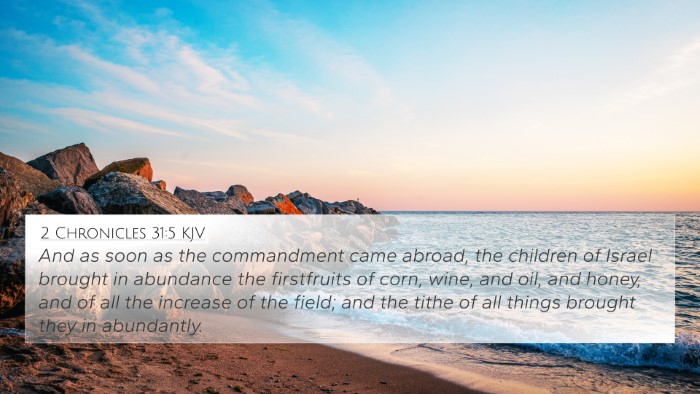 2 Chronicles 31:5 (KJV) »
2 Chronicles 31:5 (KJV) »
And as soon as the commandment came abroad, the children of Israel brought in abundance the firstfruits of corn, wine, and oil, and honey, and of all the increase of the field; and the tithe of all things brought they in abundantly.
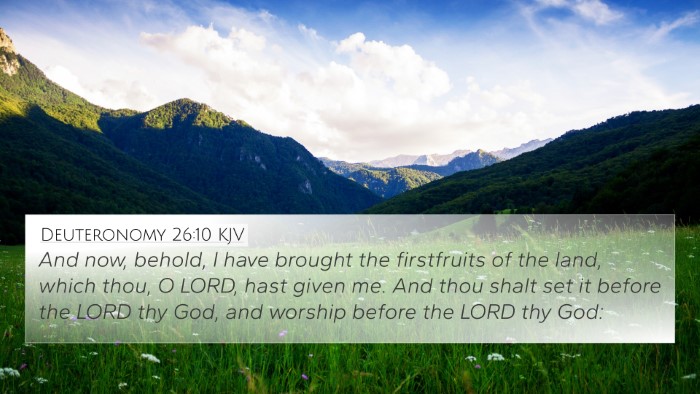 Deuteronomy 26:10 (KJV) »
Deuteronomy 26:10 (KJV) »
And now, behold, I have brought the firstfruits of the land, which thou, O LORD, hast given me. And thou shalt set it before the LORD thy God, and worship before the LORD thy God:
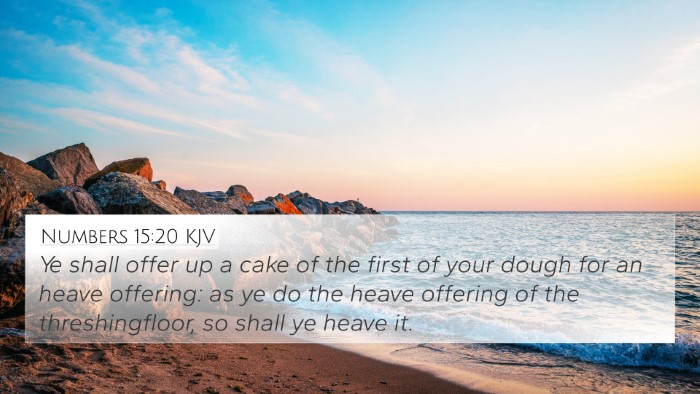 Numbers 15:20 (KJV) »
Numbers 15:20 (KJV) »
Ye shall offer up a cake of the first of your dough for an heave offering: as ye do the heave offering of the threshingfloor, so shall ye heave it.
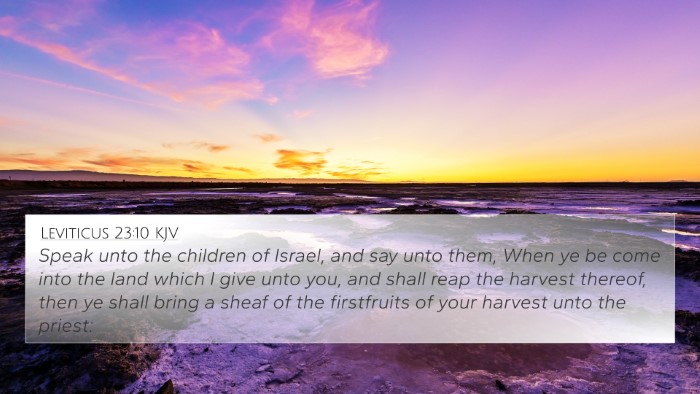 Leviticus 23:10 (KJV) »
Leviticus 23:10 (KJV) »
Speak unto the children of Israel, and say unto them, When ye be come into the land which I give unto you, and shall reap the harvest thereof, then ye shall bring a sheaf of the firstfruits of your harvest unto the priest:
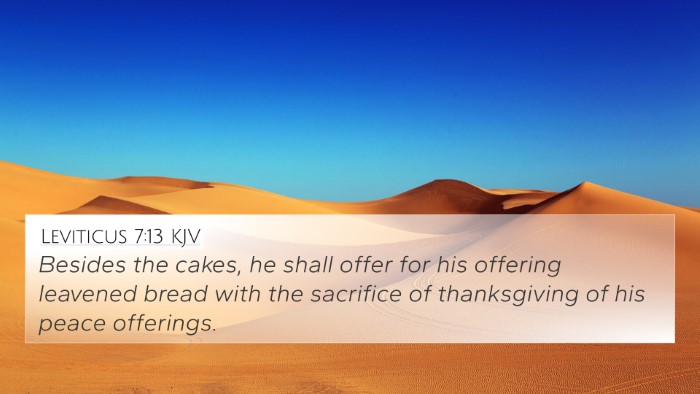 Leviticus 7:13 (KJV) »
Leviticus 7:13 (KJV) »
Besides the cakes, he shall offer for his offering leavened bread with the sacrifice of thanksgiving of his peace offerings.
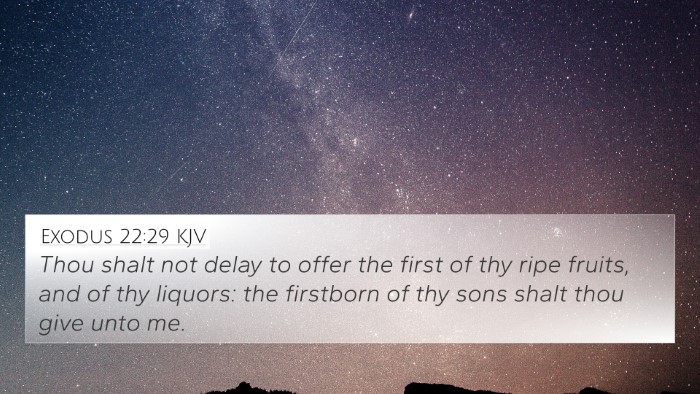 Exodus 22:29 (KJV) »
Exodus 22:29 (KJV) »
Thou shalt not delay to offer the first of thy ripe fruits, and of thy liquors: the firstborn of thy sons shalt thou give unto me.
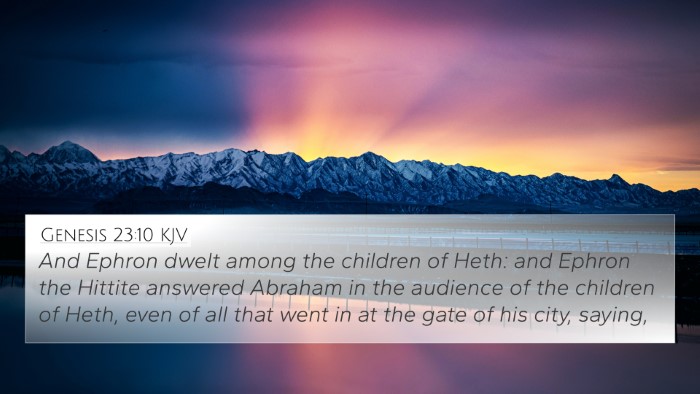 Genesis 23:10 (KJV) »
Genesis 23:10 (KJV) »
And Ephron dwelt among the children of Heth: and Ephron the Hittite answered Abraham in the audience of the children of Heth, even of all that went in at the gate of his city, saying,
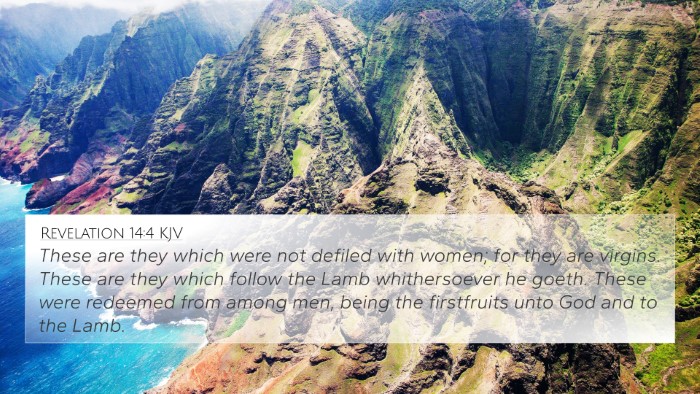 Revelation 14:4 (KJV) »
Revelation 14:4 (KJV) »
These are they which were not defiled with women; for they are virgins. These are they which follow the Lamb whithersoever he goeth. These were redeemed from among men, being the firstfruits unto God and to the Lamb.
